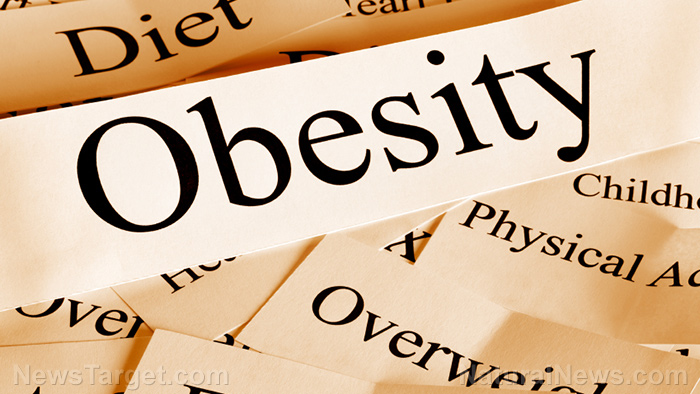"Hell's Kitchen": Unveiling the hidden crisis of obesity, diabetes and metabolic syndrome
- Dr. Joel D. Wallach's book, "Hell's Kitchen," argues that obesity, diabetes and metabolic syndrome stem from a profound nutritional deficiency, not just genetics or lifestyle choices, challenging prevailing health perspectives.
- Wallach highlights a critical shift in human dietary habits, emphasizing the abandonment of wood, peat and kelp ashes, which previously provided essential minerals for metabolic balance and appetite control.
- The book posits that obesity is a symptom of deeper nutritional deficiencies rather than a standalone condition, urging a focus on addressing the root causes rather than just managing symptoms.
- Wallach advocates for supplementing with the right minerals and reducing sugar and carbohydrate intake, claiming this approach can resolve health issues within three to six months and offers a global remedy.
- The book encourages readers to take charge of their health by understanding historical nutritional mistakes and implementing mineral supplementation, while also highlighting the lack of medical incentives to cure these conditions.
Dr. Joel D. Wallach's latest book, "
Hell's Kitchen: Causes, Prevention and Cure of Obesity, Diabetes and Metabolic Syndrome," emerges as a clarion call for change in a world grappling with escalating health crises.
Released at a time when obesity and diabetes rates are spiraling out of control, the book challenges conventional wisdom and offers a provocative perspective on the true origins of these metabolic disorders. Wallach, a renowned pathologist and nutritionist, argues that the roots of these modern epidemics lie not in genetics or lifestyle choices alone, but in a profound nutritional deficiency that has been overlooked for decades.
Wallach opens his book with a sobering observation: despite extensive public health campaigns and medical interventions, the prevalence of obesity and diabetes in America continues to climb. He posits that these conditions are not standalone diseases but rather symptoms of a deeper, more insidious problem—a widespread mineral deficiency. This deficiency, he contends, is the result of a critical shift in human dietary habits that occurred when we abandoned the use of wood, peat and kelp ashes in our daily lives.
"Obesity isn't the disease; it's a symptom," Wallach asserts. "It's a red flag signaling a profound nutritional deficiency that has been ignored for far too long."
Wallach takes readers on a historical journey, illustrating how early humans relied on the minerals found in ashes to supplement their diets. These minerals, he explains, were crucial for maintaining metabolic balance and curbing cravings. Without them, our bodies experience an insatiable hunger, leading to overeating and, ultimately, weight gain.
"By supplementing with the right minerals and reducing our intake of sugars and carbohydrates, we can eliminate these health issues within three to six months," Wallach claims. "This isn't just a solution for America; it's a global remedy."
One of the most startling revelations in "Hell's Kitchen" is the assertion that there is no legal requirement for doctors to cure patients when cures are available. Wallach argues that the medical establishment has little incentive to address the root causes of obesity and diabetes because there is more profit in treating symptoms than in curing the underlying conditions. This means that even though the cure for these conditions was available as early as 1957, medical professionals haven't been incentivized to employ it.
Wallach does not stop at diagnosis; he offers a comprehensive solution. He encourages readers to take responsibility for their own health by understanding the historical context of their nutritional deficiencies and the mistakes that have led to the current crisis. He draws parallels between the "Great Leap Forward" in human development, where early humans learned to use fire and ashes to their advantage, and our current need to reclaim the knowledge of mineral supplementation.
The message of "Hell's Kitchen" is clear: we must act. Wallach urges readers to take control of their health by implementing the suggestions in his book and sharing the knowledge with others. He believes that only through collective effort can we hope to overcome the pandemics of obesity, diabetes and metabolic syndrome.
"We can't rely on the medical system to solve this problem for us," he emphasizes. "It's up to each of us to make the necessary changes in our lifestyles and diets."
In conclusion, "Hell's Kitchen" is not just a book about health; it's a manifesto for change. It reminds us that we have the power to alter the course of our health destinies. By understanding the true causes of our modern health crisis and taking proactive steps to address them, we can pave the way for a healthier, more vibrant future.
Learn more about the book "
Hell's Kitchen" by watching the video below.
This video is from the
BrightLearn channel on Brighteon.com.
Sources include:
Brighteon.ai
Brighteon.com
 Parler
Parler Gab
Gab










